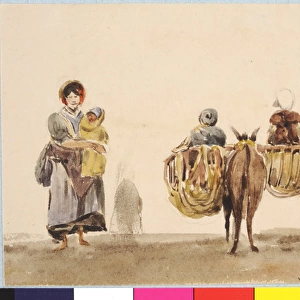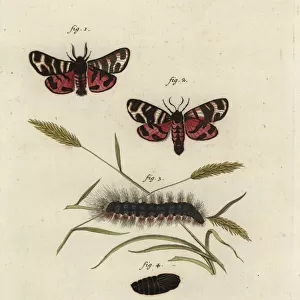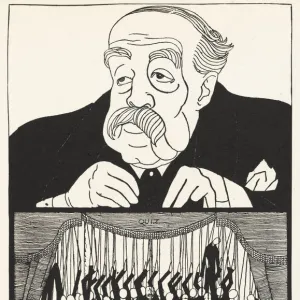Home > Animals > Insects > Butterflies > Gypsy Moth
Gypsy moth, Lymantria dispar
![]()

Wall Art and Photo Gifts from Mary Evans Picture Library
Gypsy moth, Lymantria dispar
Gypsy moth, Lymantria dispar, male, female, larva, chrysalis. Phalaena dispar. Handcoloured copperplate engraving by Johann Carl Bock from Eugenius Johann Christoph Espers Die Schmetterlinge in Abbildungen nach der Natur, Erlangen, 1786
Mary Evans Picture Library makes available wonderful images created for people to enjoy over the centuries
Media ID 23382800
© Florilegius
Abbildungen Bock Butterfly Carl Caterpillar Christoph Dispar Entomology Esper Eugenius Gypsy Johann Larva Lepidoptera Metamorphosis Moth Nach Natur Phalaena Pupa Schmetterlinge Tail Lymantria
FEATURES IN THESE COLLECTIONS
> Animals
> Insects
> Butterflies
> Gypsy Moth
> Animals
> Mammals
> Cricetidae
> Dispar
> Mary Evans Prints Online
> New Images August 2021
EDITORS COMMENTS
This stunning hand-colored copperplate engraving by Johann Carl Bock depicts various stages of the Gypsy Moth, Lymantria dispar. The Gypsy Moth is a well-known Lepidopteran species, belonging to the family Erebidae in the order Lepidoptera. The image showcases the metamorphosis of this insect, from the adult male and female moths, to the larva, or caterpillar, and the pupa, or chrysalis. The male Gypsy Moth is depicted with a brown body, wings adorned with a distinctive pattern of orange and black zigzag lines, and a long, feathery tail. The female, on the other hand, has a wingspan that is typically larger than the male's, with a more muted coloration. Both males and females have distinctive tufts of hair on their thorax. The larva, or caterpillar, is shown with a brown body, covered in small hairs, and a distinctive pattern of blue and red spots. The larva goes through several instar stages before entering the pupa stage, where it forms a chrysalis. The Gypsy Moth is native to Europe and Asia but was accidentally introduced to North America in the late 1800s. Since then, it has become a significant pest in many parts of the United States and Canada, causing widespread defoliation of forests. This beautiful engraving is taken from Eugenius Johann Christoph Espers' Die Schmetterlinge in Abbildungen nach der Natur, published in Erlangen, Germany, in 1786. The intricate detail and vibrant colors of the engraving showcase the artistry and scientific accuracy of the time, making it a valuable addition to any collection of entomological or natural history prints.
MADE IN AUSTRALIA
Safe Shipping with 30 Day Money Back Guarantee
FREE PERSONALISATION*
We are proud to offer a range of customisation features including Personalised Captions, Color Filters and Picture Zoom Tools
SECURE PAYMENTS
We happily accept a wide range of payment options so you can pay for the things you need in the way that is most convenient for you
* Options may vary by product and licensing agreement. Zoomed Pictures can be adjusted in the Cart.








